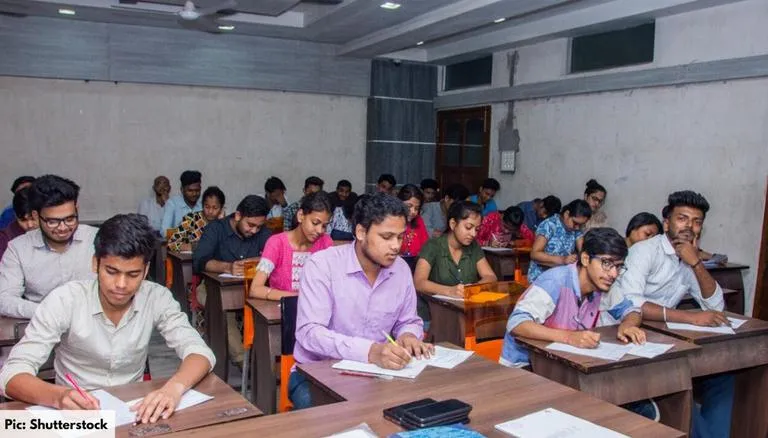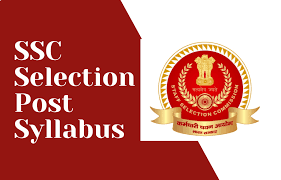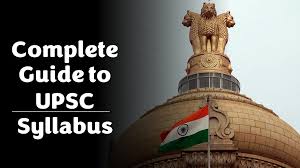Indian Railway Syllabus for job :-
Indian Railway Syllabus:
The Indian Railways conducts various recruitment examinations for various posts in the organization. The syllabus for the most popular examination conducted by the Indian Railways, i.e., the Railway Recruitment Board (RRB) examination, is as follows

Mathematics: (25 marks) Number system, BODMAS, Decimals, Fractions, LCM, HCF, Ratio and Proportion, Percentages, Mensuration, Time and Work, Time and Distance, Simple and Compound Interest, Profit and Loss, Algebra, Geometry and Trigonometry, Elementary Statistics, Square root, Age Calculations, Calendar & Clock, Pipes & Cistern etc.
General Intelligence and Reasoning: (30 marks) Analogies, Alphabetical and Number Series, Coding and Decoding, Mathematical operations, Relationships, Syllogism, Jumbling, Venn Diagram, Data Interpretation and Sufficiency, Conclusions and Decision Making, Similarities and Differences, Analytical reasoning, Classification, Directions, Statement – Arguments and Assumptions etc.
General Awareness: (15 marks) Current Affairs in Science & Technology, Sports, Culture, Personalities, Economics, Politics and any other subjects of importance.
General Science: (30 marks) Physics, Chemistry and Life Sciences (up to 10th standard CBSE syllabus).
Note: The total number of questions in the examination will be 100, and the total marks will be 100. The duration of the examination will be 90 minutes.
In addition to the above, the Indian Railways also conducts specialized recruitment examinations for various technical and non-technical posts. The syllabus for these examinations varies depending on the specific post and job requirements.
Indian Railways is the national railway system of India, which is owned and operated by the government of India through the Ministry of Railways. It is one of the largest railway networks in the world, with over 68,000 kilometers of track and around 8,000 stations. Indian Railways employs over 1.3 million people and transports millions of passengers and freight across the country every day.
Indian Railways offers various services such as passenger trains, express trains, suburban trains, freight trains, and special trains. It also has a range of classes for passengers, including general class, sleeper class, AC 3-tier, AC 2-tier, and AC first class. In addition to this, Indian Railways has introduced various modern facilities such as online ticket booking, e-catering services, and train tracking systems to make the travel experience more comfortable and convenient for passengers.
Overall, Indian Railways is an essential part of the transportation infrastructure in India and plays a significant role in the economic and social development of the country.
Syllabus:

The syllabus for Indian Railways exams can vary depending on the specific exam and the category of the post for which you are applying. However, some common topics that are usually included in the syllabus for Indian Railways exams are:
- Mathematics: Arithmetic, algebra, geometry, trigonometry, and statistics.
- General Intelligence and Reasoning: Analogies, coding and decoding, mathematical operations, relationships, syllogism, statement and conclusions, and visual reasoning.
- General Awareness: Current affairs, general knowledge, Indian geography, Indian history, Indian polity, and Indian economy.
- Technical Ability: This section is generally included in exams for technical positions such as Junior Engineer (JE) and Assistant Loco Pilot (ALP). The syllabus for this section may include topics such as electrical engineering, mechanical engineering, electronics, and communication.
- English Language: Comprehension, grammar, and vocabulary.
It is important to note that the syllabus for different exams may vary, and it is always advisable to check the official notification for the specific exam you are preparing for to get the detailed syllabus and exam pattern.
Study:

If you are preparing for an Indian Railways exam, here are some tips to help you study effectively:
- Know the exam pattern and syllabus: The first step in preparing for any exam is to understand the exam pattern and syllabus. This will give you an idea of what to expect in the exam and what topics you need to focus on.
- Make a study plan: Make a study plan based on the exam pattern and syllabus. Set realistic goals for each day and week, and allocate sufficient time to cover all the topics.
- Use study material and resources: Gather the relevant study material and resources such as textbooks, previous year question papers, online resources, and coaching material. Use these resources to understand the concepts and practice solving different types of questions.
- Practice solving sample papers and mock tests: Practice solving sample papers and mock tests regularly to improve your speed and accuracy. This will also help you to get a feel of the actual exam and boost your confidence.
- Revise regularly: Revise the topics regularly to ensure that you remember them for the exam day. Make notes of important points and formulas for quick revision.
- Stay updated with current affairs: Keep yourself updated with the latest current affairs, as this is an important topic in most Indian Railways exams.
- Take care of your health: Lastly, take care of your health by eating well, getting enough sleep, and exercising regularly. A healthy body and mind will help you study better and perform well in the exam.

Practice Notes:
There are various practice materials available for Indian Railways exams. Some of the resources you can use for practice are:
- Previous year question papers: Previous year question papers are a great resource for practicing and getting an idea of the types of questions that may appear in the exam.
- Online mock tests: There are various websites and apps that offer online mock tests for Indian Railways exams. These tests simulate the actual exam and help you get a feel of the exam environment.
- Study guides and books: There are many study guides and books available that provide practice questions and exercises for Indian Railways exams. Some of the popular books include those published by Arihant, Kiran Publications, and Disha Publications.
- Official websites: The official websites of Indian Railways and the Railway Recruitment Boards (RRBs) offer sample question papers and other practice materials for the exams.
- Coaching centers: If you prefer to join a coaching center, there are many reputed coaching centers that offer preparation courses and practice materials for Indian Railways exams.
Remember to practice regularly and analyze your performance to identify your strengths and weaknesses. This will help you to focus on areas where you need more practice and improve your overall performance.
The Indian Railways conducts various recruitment examinations for various posts in the organization. The syllabus for the most popular examination conducted by the Indian Railways, i.e., the Railway Recruitment Board (RRB) examination, is as follows:

- Mathematics: (25 marks) Number system, BODMAS, Decimals, Fractions, LCM, HCF, Ratio and Proportion, Percentages, Mensuration, Time and Work, Time and Distance, Simple and Compound Interest, Profit and Loss, Algebra, Geometry and Trigonometry, Elementary Statistics, Square root, Age Calculations, Calendar & Clock, Pipes & Cistern etc.
- General Intelligence and Reasoning: (30 marks) Analogies, Alphabetical and Number Series, Coding and Decoding, Mathematical operations, Relationships, Syllogism, Jumbling, Venn Diagram, Data Interpretation and Sufficiency, Conclusions and Decision Making, Similarities and Differences, Analytical reasoning, Classification, Directions, Statement – Arguments and Assumptions etc.
- General Awareness: (15 marks) Current Affairs in Science & Technology, Sports, Culture, Personalities, Economics, Politics and any other subjects of importance.
- General Science: (30 marks) Physics, Chemistry and Life Sciences (up to 10th standard CBSE syllabus).
Note: The total number of questions in the examination will be 100, and the total marks will be 100. The duration of the examination will be 90 minutes.
In addition to the above, the Indian Railways also conducts specialized recruitment examinations for various technical and non-technical posts. The syllabus for these examinations varies depending on the specific post and job requirements.







